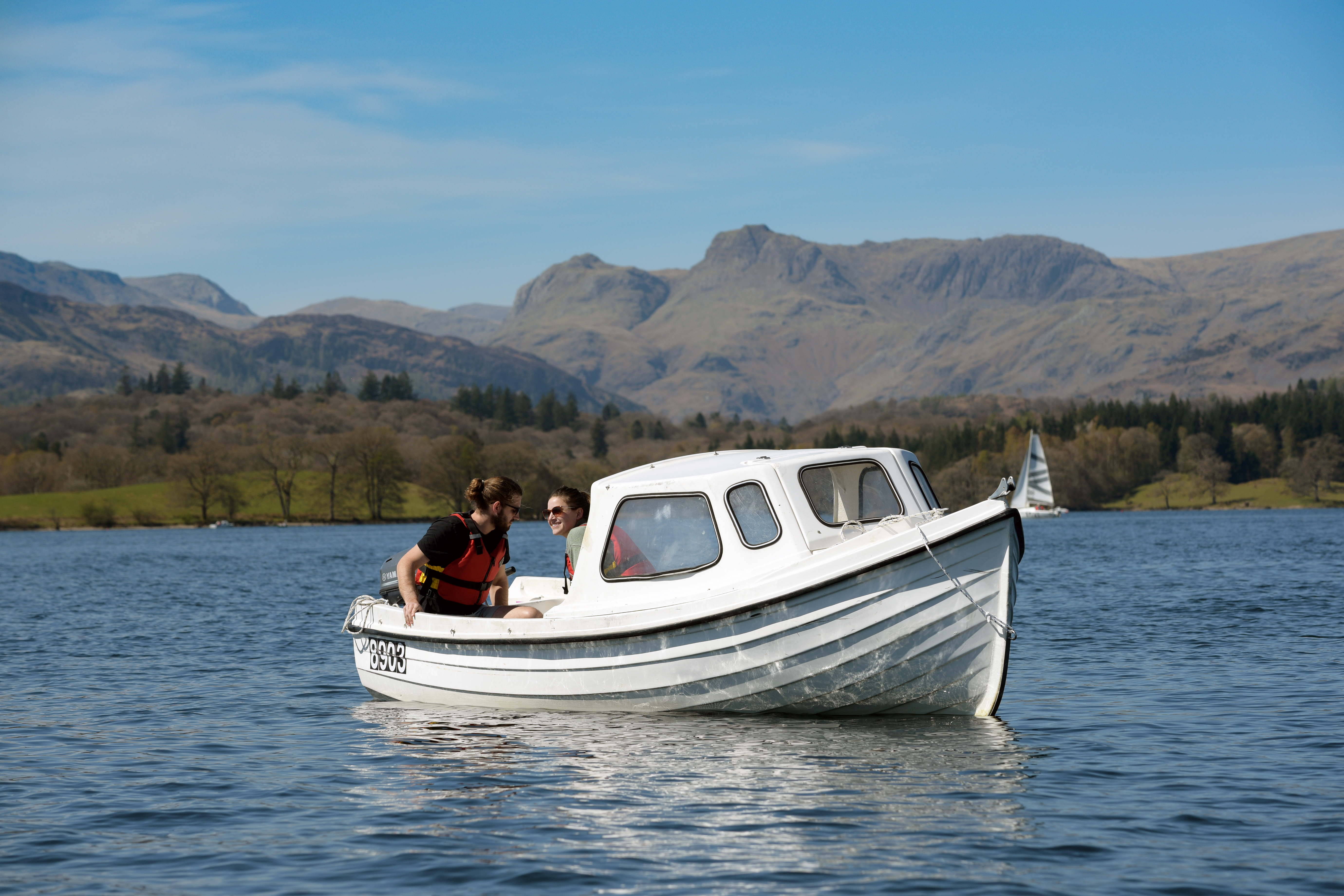
Lake users have a right of navigation on Windermere, Ullswater, Derwentwater and Coniston Water.
These navigable lakes in the Lake District have different byelaws that apply:
If you do see lake byelaw infringements taking place, please report these through to our duty Lake Rangers as soon as possible. They are contactable by mobile on 07768 320241 or email LakeRangerTeam@lakedistrict.gov.uk and our Lake Rangers will respond.
Please provide as much information as possible as it increases the chance we will have of finding those involved, in order to investigate what happened. You can use our byelaw infringement report form to record information and email it to us.
The 'Navigable Lake Byelaws' are in place to ensure the safety and wellbeing of all groups who use the lakes. Our officers monitor those using the lake, and we will stop and talk to people to provide advice, educate them on safety and the byelaws, and make sure everyone is safe. We use a variety of things to help us undertake this monitoring work, including;
Filming is done by uniformed Lake District National Park Authority officers. We use video recording equipment that is stored, used and maintained according to the manufacturer’s instructions. Our officers generally look at all activities on the lake and record users they consider to be using the lakes contrary to the byelaws or in a way that is dangerous to other lake users.
When our officers think a situation needs it, we will take appropriate steps to stop or prevent the activity. This may include legal enforcement action.
In the case of vessels considered to be travelling faster than the relevant speed limits, any video evidence obtained will be processed using commercial or open-source software. Speeds are then calculated using the frame rate and metadata of the video file and the elapsed time taken for vessels to pass fixed points in the frame.
As new equipment, software or methodology becomes available and is adopted by us, it will be brought to the attention of lake users both here and through other channels.
The Regulation of Investigatory Powers Act 2000 (RIPA) authorisation is not required for carrying out our routine enforcement duties by authorised officers. It is not considered to be a 'covert operation', as officers are not engaged in a 'specific investigation or a specific operation' nor do they carry out their duties 'in a manner that is calculated to ensure that persons who are subject to the surveillance are unaware that it is or may be taking place'.
All evidence is forwarded to our solicitor, who determines whether or not the matter will be prosecuted through the Single Justice Procedure in the Magistrates’ Court.
All interactions between our officers and lake users are recorded on our Registration Database and are held for three years.